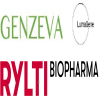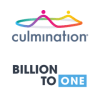Dive Brief:
- AbbVie Inc.'s ambition of pushing annual revenues for its anti-inflammatory drug Humira above $20 billion looks more likely to be realized after the pharma negotiated a settlement deal with potential biosimilar challenger Samsung Bioepis Co Ltd.
- Under an agreement announced April 5, AbbVie will grant Samsung Bioepis a non-exclusive license to Humira-related intellectual property in the U.S. beginning June 30, 2023, which would allow the Korean drugmaker to start selling its copycat version of Humira on that date.
- Last fall, AbbVie secured a similar deal with Amgen Inc., ensuring the pharma wouldn't be able to market its biosimilar Amjevita before January 1, 2023. While other potential rivals remain, the two settlements underscore just how formidable AbbVie's thicket of patents protecting Humira is. As a result of the two deals securing a non-exclusive license, pending litigation with Samsung Bioepis and Amgen will be dismissed.
Dive Insight:
Investors stung by a recent setback in AbbVie's plans to expand its cancer business can take solace in the latest sign the company's main breadwinner will maintain its dominant position for several more years to come.
Last year, Humira (adalimumab) earned AbbVie $18.4 billion, continuing a seemingly inexorable climb that has seen sales nearly double in five years. The North Chicago, Illinois-based drugmaker believes 2020 sales could approach $21 billion, banking on increasing penetration of biologics in rheumatology, gastroenterology and dermatology.

That confidence is built on a foundation of more than 100 U.S. and ex-U.S. patents protecting Humira. The so-called composition-of-matter patent for adalimuamb actually expired December 2016 in the U.S. and will lapse October 2018 in Europe.
But patents on other aspects of the drug should prevent competition from launching in the U.S. before 2022, AbbVie says. In the EU, both Samsung Bioepis and Amgen are clear to begin selling their Humira copies this fall.
Challengers could still attempt to enter the U.S. market sooner. Boehringer Ingelheim GmbH won approval of its biosimilar version of Humira last summer. And Novartis AG's generics unit Sandoz recently submitted its would-be copy for regulatory OK at the beginning of this year.
Boehringer and AbbVie, though, remain tied up in U.S. district court over the German drugmaker's biosimilar and Novartis will likely face a similar legal challenge should its drug win a green light from the Food and Drug Administration.
For AbbVie, successful defense of Humira protects a growing and high profit margin flow of revenues — effectively covering for any clinical setbacks or slower uptake of the company's other medicines.
But, as the recent trial failure of AbbVie's touted cancer drug Rova-T shows, a post-Humira world may not be so friendly.










